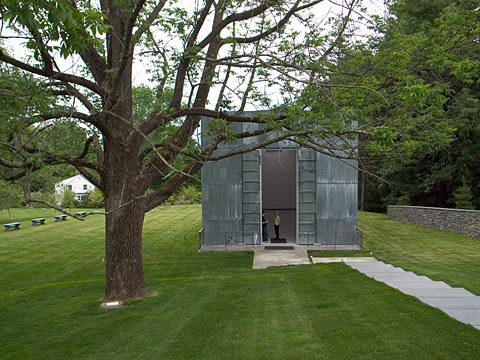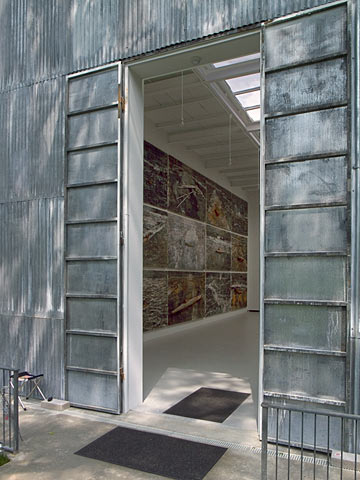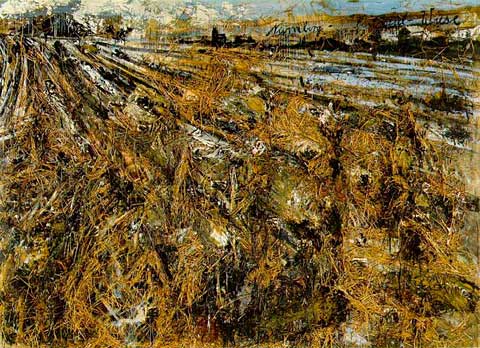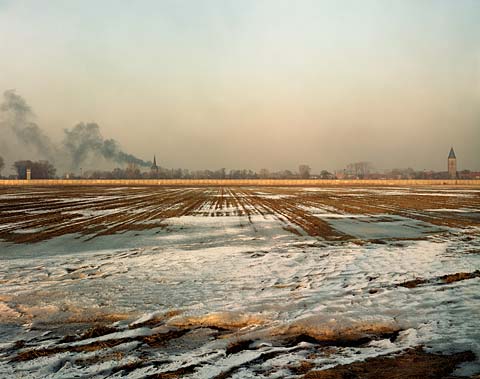Connecticut/New York

Anselm Kiefer: Velimir Chlebnikov, The Aldrich Museum
On Saturday, drove with friends Art and Eve to Ridgefield, Connecticut to see an exhibition by the German painter Anselm Kiefer who has created a huge multi-paneled piece inspired by the Russian poet Velimir Chlebnikov (1885-1922), one the founders of Russian futurism, the modernist art movement. To quote from the exhibit brochure: "He wrote poems and pamphlets that, through complex mathematical formulae, chart the ebb and flow of conflicts East and West, the creation of global communications systems, and the supposed existence of climactic naval battles every 317 years."

A peek inside -- photography not allowed
The thirty canvases have lead boats and submarines wired to their surfaces along with various bits and pieces of cloth tape, straw, and dead sunflowers. Kiefer designed the shed-like building to house the paintings, and the whole thing was transported from Germany to the garden of the Alddrich. The piece is actually on loan from an anonymous owner and will only be viewable until October 1. Why anyone would acquire such a gargantuan--not to mention important--piece for their personal enjoyment is beyond me.

Nuremberg, Anselm Kiefer, 1980
Kiefer's work has interested me for a long time. Back in the '80s as I was beginning to photograph the Iron Curtain border, I saw Kiefer's landscape oriented paintings at his gallery in New York. I then found these same haunted landscapes traveling across central Europe. I even wrote a song (mp3 file) based on the title of a series of Russian futurist drawings by Krutikov called Cities on the Aerial Paths of Communication, which was about the fall of the Soviet Union and the end of utopian idealism. I find myself attracted to the large themes that Kiefer grapples with so obsessively, though I pursue a less mythological approach.

Oebisfelde, Germany -- the Iron Curtain, 1987 (4x5 film)
Grace Glueck of the New York Times writes of Kiefer: "he confronts the realization that civilization is still not a comfortable distance from chaos and may never be."

0 Comments:
Post a Comment
Links to this post:
Create a Link
<< Home